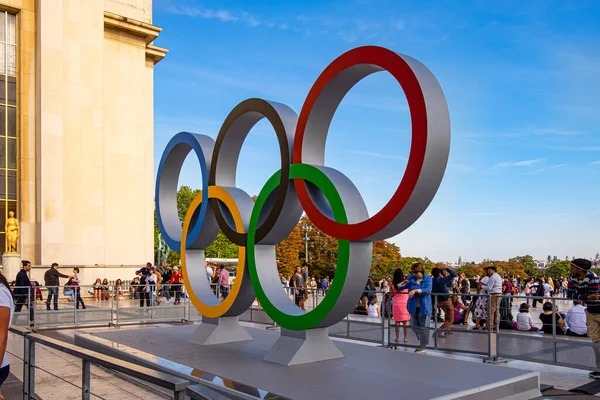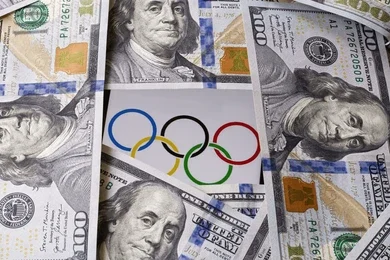Alright, folks, let’s talk about the Olympics. You know, that grand event that happens every four years, where the world’s best athletes gather to compete, and back here in India, we gather to… well, mostly complain about the lack of medals. But hey, it’s all in the spirit of striving for more, right? We cheer for our athletes with all our hearts, even if our knowledge about some sports is pretty questionable.;)
India’s performance in the Paris 2024 Summer Olympics resulted in a total of six medals, comprising one silver and five bronze medals. India’s Paralympic athletes delivered an even more impressive performance, securing their best-ever medal tally with 29 medals: 7 gold, 9 silver, and 13 bronze. Neeraj’s nearly missed gold, which broke all our hearts.

A Journey Through Time
So imagine this: a bunch of Greeks chilling on a summer day, deciding to throw some javelins, run races, and generally show off their athletic prowess. That’s how the Olympics kicked off in 776 BC. Fast forward a couple of millennia, and here we are with an event that’s bigger than almost any other sporting event. From the ancient games in Olympia to the global spectacle we witness today, the Olympics have transformed into something truly epic.
The Business of the Olympics
But let’s get real. The Olympics isn’t just about sports anymore. It’s a business, a massive, multi-billion dollar business. Think sponsorships, broadcasting rights, ticket sales, and merchandise. Companies pay big bucks to slap their logos everywhere, hoping you’ll remember them while cheering for your favourite sprinter. NBC, for example, paid a whopping $7.75 billion for broadcasting rights till 2032. Viacom18 acquired media rights to the Olympic Games 2024 for $31 million, which is around 260 cr. It was seeking a spot rate of Rs 1,40,000 per 10 seconds for mobile, similar to the spot rate for both standard and high-definition TV channels.
Why? Because millions of people tune in, and where the crowd goes, advertisers follow. And those Olympic sponsors? They’re not just handing out freebies; they’re banking on the visibility to skyrocket their sales.
The Olympic-sized Price Tag
So, Let’s say you’re a city preparing to host the Olympics. You’re thinking, “This will be our moment! Tourism will boom, jobs will flood in, and our infrastructure will get a glow-up.” Sounds like a win-win, right? Well, not quite. Hosting the Olympics has become a financial black hole. Cities have to build shiny new stadiums, Olympic villages, and expand their public transportation systems. But most of these venues turn into “white elephants” after the games.
Let’s start with the biggest reason cities are running away from hosting, which is that it’s ridiculously expensive. Between new stadiums, athlete villages, and the security mechanism, you’re looking at a bill that could make even Elon Musk flinch. By the time the games rolled around, cities like Rio and Athens were left with infrastructure that cost a fortune to maintain but didn’t bring in the tourists or revenue they had hoped for. But now, the IOC has an endless wishlist, from venues for new sports to top-notch housing for athletes.

The Debt Trap
Ah, debt. The gift that keeps on giving. Hosting the games used to be a badge of honour, but nowadays, cities treat the opportunity like a bad date; they’re swiping left hard. What’s changed? Well, a lot. While the Olympics still bring prestige, they also come with sky-high costs, political headaches, and a post-games hangover. Cities go all-in on their Olympic dreams, often overshooting their budgets by billions. Montreal, for instance, took 30 years to pay off its 1976 Olympic debt. THIRTY YEARS. It was the same for Rio in 2016, leaving behind a debt and decaying infrastructure trail.
Why Build It If No One Comes?
The trend of building elaborate venues has become an Olympic tradition of sorts, but it’s not one that anyone asked for. Over the years, the IOC has added more sports, and guess what? That means more venues. This has escalated costs significantly, with cities like Sydney, Athens, and Beijing all building 10-20 brand-new facilities. Not only are these pricey to construct, but they’re also tough to maintain. The economic return? Not as big as you’d hope. It turns out the economic boost cities hope for is more of a pipe dream than a guarantee.

Social and Political Drama
Let’s not forget this pain in the a**. Olympic games often lead to the displacement of residents and gentrification in host cities. This creates political unrest as communities see their neighbourhoods change, often not for the better. Locals get priced out or pushed out, all for the sake of a few weeks of international spotlight. The games are more of a liability than an opportunity for cities facing political and social issues.
The Olympic Decline
It’s no surprise that fewer cities are jumping at the chance to host. Back in the day, we had a dozen cities competing for the honour. But fast forward to 2024, and only two cities were left in the race. That’s why, when it came time to pick a host for 2024, the IOC ended up awarding two future Olympics in one go, Paris 2024 and Los Angeles 2028, because no one else wanted to step up for the latter.
Can the Games Be Saved?
Maybe it’s time to rethink the model. Instead of building extravagant new venues, could you reuse what you’ve got and keep things simple? Cities like LA made hosting look easy (and profitable) by reusing venues in 1984. The dream of Olympic glory still exists, but the price tag needs to come down. Otherwise, we might end up with an Olympics that no one wants to host, or worse, one that only the ultra-rich can afford to stage. Could a more sustainable, thrifty, and less demanding Olympic model make a comeback?
With the next Olympics set for LA in 2028, organisers are already looking to avoid the pitfalls of empty seats and fan engagement issues. They are also planning to make the Olympics thrifty and less demanding. Meanwhile, the International Olympic Committee (IOC) is also working on new strategies to keep the spirit of the Olympics alive. Addressing issues like sustainability and reducing logistical challenges are high priorities. The aim is to build on lessons learned from previous editions to ensure a better experience for both participants and spectators. Initiatives for better inclusion, diversity, and greater representation of women in sports will also be key themes in the upcoming Games.
In the end, the Olympics are still a spectacle we all love to watch, but hosting them? That’s another story entirely.

- Deadpool vs. Wolverine: How to Market a Superhero Showdown - September 17, 2024
- Why Hosting the Olympics Is No Longer Gold! - September 16, 2024
- SPEC-TACULAR : How Digital is Transforming the Eyewear Industry - July 14, 2024
Currently figuring out MBA student life at IIM Udaipur.
I usually geek out on business, tech, sports, films, and a good dose of humor. I enjoy turning complex ideas into something simple and fun.
Let’s connect on LinkedIn and chat (or share some memes!)



